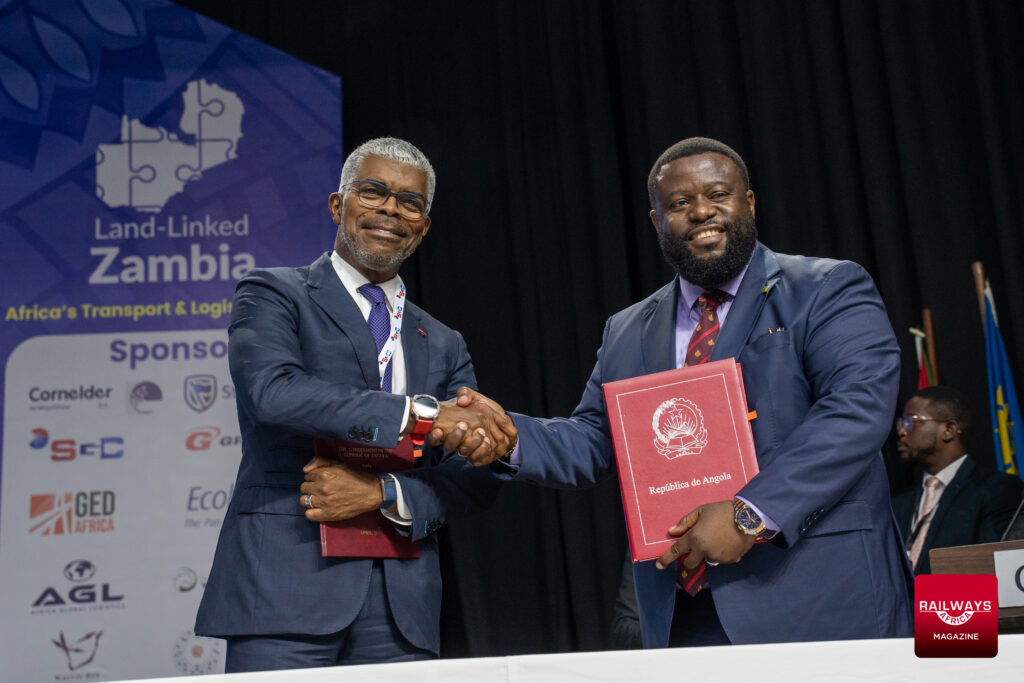The Lobito Corridor: A New Era in African Infrastructure
The recent signing of the Intergovernmental Agreement (IGA) between Zambia and Angola, witnessed at the highest levels of both governments, marks a decisive step forward for the Lobito Corridor. This formal commitment to jointly develop, finance, construct and operate an 830-kilometre railway line from Luacano in Angola to Chingola in Zambia reflects the deepening alignment and political will now driving one of Africa’s most transformative infrastructure projects.
For far too long, Africa’s ability to independently conceive and execute complex infrastructure has been written off. The Lobito Corridor Railway is a powerful response. Connecting Angola’s port of Lobito with Zambia and potentially serving the Democratic Republic of Congo (DRC), this project is redefining what African-led development looks like. It brings to life a modern trade and transport network that will reduce export logistics times from six weeks to one and catalyse high-value industrial development spurring thousands of jobs.
In essence, the Lobito Corridor is already progressing from vision to implementation. A major milestone was achieved in 2024, when Africa Finance Corporation (AFC), as lead project developer, signed concession agreements with the Governments of Angola and Zambia on the sidelines of the United Nations General Assembly. This foundational step secured the mandate to finance, construct, and operate the Zambia-Lobito Railway Line.
The recent Intergovernmental Agreement builds on this momentum, signalling deeper sovereign alignment and political commitment. Zambia, for its part, is complementing the rail development with infrastructure investments and policy reforms—including the transformation of Solwezi into an international airport, the creation of new agricultural and urban hubs in the North-Western province, and proposals to shift 40% of freight traffic to rail.
These efforts are positioning Zambia as a landlinked logistics hub at the heart of an integrated regional trade network. These national and regional efforts are now converging with tangible progress on project delivery.
Technical studies are nearing completion. Procurement and contractor selection are on the horizon. And despite the macroeconomic volatility that continues to shape global capital flows, financing milestones are progressing with plans to finalise arrangements by the end of 2026, with tapping into capital markets as one of potential funding sources, and have the corridor fully up and running by 2031.
Yes, the challenges are real—from adverse weather delaying land surveys to the painstaking clearance of post-conflict terrain with the presence of unexploded mines—but these are being met with resilience, professionalism, and extraordinary coordination. What distinguishes Lobito is the depth of African integration to combine collective capability. Ministries, engineers, environmental and logistics teams are working hand-in-hand across borders. Local knowledge is leading, and global capital is following.
As lead financial advisor and project developer, AFC is supporting all of the governments and private stakeholders to drive forward all aspects of the project. Our approach—working alongside African and international partners—is focused on de-risking delivery and mobilising capital at scale.
Support from partners including the Governments of Angola, Zambia, DRC, United States, European Union, Italy, and the African Development Bank has been instrumental to the project’s momentum. But what’s equally important is that this momentum is being shaped by African priorities. The leadership, the long-term commitment, and the risk-taking that sustains the Lobito Corridor come from within the continent.
This marks a clear departure from earlier mine-to-port models that dominates the development landscape. Today, Africa is building its future with purpose and pragmatism. In this sense, the Lobito Corridor represents so much more than a railway.
By improving logistics, unlocking mineral and agricultural value chains, and supporting new industrial clusters, Lobito will help reshape trade dynamics for land linked economies and accelerate Africa’s position in global value chains. This is infrastructure as strategy—designed not just to connect ports, but to connect ambition with opportunity.
By Samaila Zubairu, President & CEO of Africa Finance Corporation (AFC).



